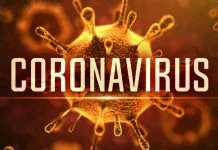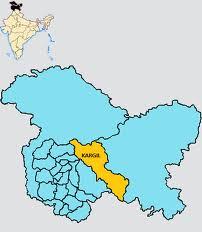The World Health Organisation has called an emergency meeting to address the spread of the mysterious Zika virus, as health experts warned the outbreak is ballooning at an “extremely alarming” rate.
The disease has been linked with a birth defect known as microcephaly, which sees children born with abnormally small brains, as well as a neurological syndrome that can cause paralysis.
Margaret Chan, the director-general of the WHO, said board members would meet on Monday 1 February to establish if the Zika virus should be declared an international emergency.
And an official at the organisation’s office for the Americas, where the disease has spread to 23 countries in a matter of months, said we can “expect three to four million cases”.
Zika virus is spread to people through mosquito bites. The most common symptoms of Zika virus disease are fever, rash, joint pain, and conjunctivitis (red eyes). The illness is usually mild with symptoms lasting from several days to a week. Severe disease requiring hospitalization is uncommon.
In May 2015, the Pan American Health Organization (PAHO) issued an alert regarding the first confirmed Zika virus infection in Brazil. The outbreak in Brazil led to reports of Guillain-Barre syndrome and pregnant women giving birth to babies with birth defects and poor pregnancy outcomes.
- No vaccine exists to prevent Zika virus disease (Zika).
- Prevent Zika by avoiding mosquito bites (see below).
- Mosquitoes that spread Zika virus bite mostly during the daytime.
- Mosquitoes that spread Zika virus also spread dengue and chikungunya viruses.
What is Zika virus disease (Zika)?
Zika is a disease caused by Zika virus that is spread to people primarily through the bite of an infected Aedes species mosquito. The most common symptoms of Zika are fever, rash, joint pain, and conjunctivitis (red eyes). The illness is usually mild with symptoms lasting for several days to a week.
What are the symptoms of Zika?
About 1 in 5 people infected with Zika will get sick. For people who get sick, the illness is usually mild. For this reason, many people might not realize they have been infected.
The most common symptoms of Zika virus disease are fever, rash, joint pain, or conjunctivitis (red eyes). Symptoms typically begin 2 to 7 days after being bitten by an infected mosquito.
How is Zika transmitted?
Zika is primarily transmitted through the bite of infected Aedes mosquitoes. It can also be transmitted from a pregnant mother to her baby during pregnancy or around the time of birth. We do not know how often Zika is transmitted from mother to baby during pregnancy or around the time of birth.
Who is at risk of being infected?
Anyone who is living in or traveling to an area where Zika virus is found who has not already been infected with Zika virus is at risk for infection, including pregnant women.
What countries have Zika?
Specific areas where Zika virus transmission is ongoing are often difficult to determine and are likely to change over time. Please visit the CDC Travelers’ Health site for the most updated information.
What can people do to prevent becoming infected with Zika?
There is no vaccine to prevent Zika. The best way to prevent diseases spread by mosquitoes is to avoid being bitten. Protect yourself and your family from mosquito bites.
What is the treatment for Zika?
There is no vaccine or specific medicine to treat Zika virus infections.
Treat the symptoms:
- Get plenty of rest.
- Drink fluids to prevent dehydration.
- Take medicine such as acetaminophen to reduce fever and pain.
- Do not take aspirin or other non-steroidal anti-inflammatory drugs.
- If you are taking medicine for another medical condition, talk to your healthcare provider before taking additional medication.
How is Zika diagnosed?
- See your healthcare provider if you develop symptoms (fever, rash, joint pain, red eyes). If you have recently traveled, tell your healthcare provider.
- Your healthcare provider may order blood tests to look for Zika or other similar viral diseases like dengue or chikungunya.
What should I do if I have Zika?
Treat the symptoms:
- Get plenty of rest
- Drink fluids to prevent dehydration
- Take medicine such as acetaminophen to reduce fever and pain
- Do not take aspirin or other non-steroidal anti-inflammatory drugs
















